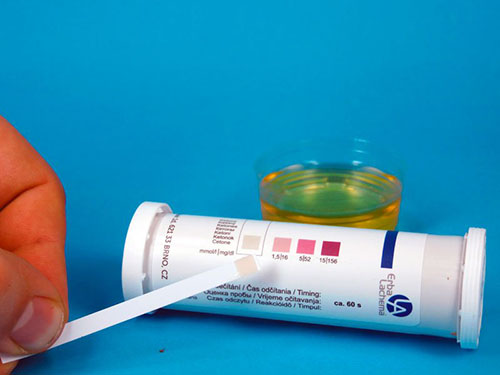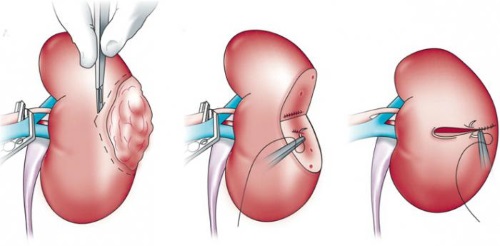What You Should Know About an Adult ADHD Assessment
There are a variety of things you need to remember when you are preparing for adult adhd assessments. These include symptoms treatments, the treatment options, and the type of specialist you should consider.
Signs and symptoms
ADHD symptoms in adulthood could impact negatively your life. They can impact your relationships, your career and overall happiness. Symptoms of ADHD can also make you more prone to health issues. The most frequent adult ADHD symptoms include forgetfulness inattention, impulsiveness, disordered thinking and difficulties with managing responsibilities.
Adult ADHD can be diagnosed by conducting a thorough evaluation of your symptoms and seeking an expert’s opinion. Based on the severity of your symptoms, your doctor might recommend a mix of medication and psychotherapy to manage your symptoms. If your symptoms are severe, you will likely require treatment for depression as well.
While there are numerous adult ADHD medications available, some may cause negative adverse effects. To avoid adverse consequences, it’s best to talk to your doctor about any medications you are taking.
While the symptoms of ADHD can be distracting, they can also be helpful. ADHD symptoms can be distracting, but they can also help you focus better. ADHD can lead to stress and anxiety.
A diagnosis of ADHD can help you feel more confident about yourself. It also provides you with a brand new toolkit to overcome your challenges. These tools could include cognitive behavioral therapy, a method of improving attention, organization, and behavior.
It is very common for adults with ADHD to also experience other issues. ADHD adults are more likely to experience more marital conflicts, frequent job moves, and less education. They may also have difficulty getting along with authority figures.
Adults with ADHD are also more prone to sensory stimuli, which can trigger sleep disorders. You can help ease the issue by doing things as simple as removing background noise from your room and maintaining an appropriate temperature.
Adult ADHD medication is usually effective and can make your life simpler. It is important to disclose any other medical conditions you have when talking with your doctor, , since they could affect the medication you are taking.
DSM-based diagnosis
The DSM-based adult adhd assessment for adults diagnosis is based on a wide range of symptoms. These symptoms include the hyperactive inattention and impulsive symptoms. Some of these symptoms may not be clinically significant. These symptoms how do adults get assessed for adhd indicate that the person suffers from ADHD.
Adult ADHD is a problem that affects 2.5 percent of adults. It is a protected condition under the Americans with Disabilities Act. This means that organizations receiving federal funding are not able to discriminate disabled individuals. People who suffer from ADHD are often more vulnerable than neurotypical people. For example, many people with ADHD struggle to pay attention to their tasks and can lose their focus, and fidget with their feet or hands.
The majority of these symptoms occur at home, in school, or in conversations. They can also be connected to anxiety. The symptoms can also be caused by excessive exposure to toxic substances. Most often, these ailments are more common for children than for adults.
To be diagnosed with ADHD to be diagnosed with ADHD, there must be significant impairment in at the very least two major situations. This could mean that the individual is experiencing difficulties at home, at work, or with their relationships.
There are four primary types of symptoms that are used to establish the DSM-based adult ADHD diagnosis. This includes the inattention symptoms and hyperactive impulsive symptoms, as well as the clarification of the parentheticals and the DSM-based ADHD diagnosis symptoms.
ADHD sufferers typically talk too much and are not aware of the impact they have on other people. They are also less alert and less organized. These symptoms will be screened for and the person will be asked a series of questions to determine the cause.
To determine whether a person has adhd assessment for adults Leicester the doctor will evaluate the patient’s history and family background. The doctor will then conduct a psychiatric assessment, which will include an assessment and description of the patient’s health. Treatment for ADHD will typically involve treatment with medication or cognitive behavior therapy.
There isn’t a set age at when an ADHD diagnosis is made. However, the symptoms needed to be considered for a diagnosis must be present prior to the time the individual turns 12. The symptoms can change depending on the child’s age at diagnosis.
Treatment options
ADHD can make it difficult for many adults to manage their daily tasks. The condition could be accompanied by anxiety or depression. A mental health professional will examine the patient and explain the benefits of treatment.
There are a variety of treatment options for adults suffering from ADHD. Certain treatments are taken every day, while others are prescribed when needed for specific tasks. Treatment can consist of therapy or medication and may also involve building new skills and appropriate accommodations.
ADHD treatment is often carried out by using stimulants, like amphetamine-based stimulants, such as Adderall IR or methylphenidate. Nonstimulants are another option for people with ADHD. They can be used in conjunction with stimulants to boost the effectiveness of the treatment.
 In addition to medication Treatment for adults with adhd assessment uk adults includes psychotherapy, counselling and behavioral interventions. These interventions can improve decision making as well as learning and problem-solving. Counseling can also assist patients overcome failures and negative reactions.
In addition to medication Treatment for adults with adhd assessment uk adults includes psychotherapy, counselling and behavioral interventions. These interventions can improve decision making as well as learning and problem-solving. Counseling can also assist patients overcome failures and negative reactions.
A number of studies have identified gaps in treatment for adults with ADHD. Recognizing the reasons for treatment changes will allow doctors to track symptoms more carefully. Additionally, understanding these factors could improve communication between doctors and patients and improve outcomes for treatment.
Researchers utilized claims-based data for study of 122881 adults with ADHD. Over the course of a year, 50% of patients altered their treatment regimen. While the actual impact of the disease may have overcame the reported changes but the results offer an insight into the needs that are not met in the adult ADHD population.
Key changes were often linked with cost considerations or ineffective management of symptoms. Most of these changes occurred during outpatient visits.
About 40% of adult ADHD patients reported at least one complications. Most of these were sleep problems. Another common complication was medication discontinuation. Nearly 20 percent of patients fail to refill their prescription.
One fifth of physicians said they were unhappy with their treatment options. Even though doctors are satisfied with their current treatment options, this study suggests that there are still unmet medical needs for this population.
The findings of this study suggest that further studies are needed to better understand the diverse demands of the adult ADHD population. The results will serve as a basis to develop treatment strategies in the future.
Locating an expert
It is essential to receive the right treatment if you’ve been diagnosed with ADHD. There are a variety of specialists who can help you manage your symptoms. Finding the right professional can be a challenge. There are steps you can take to simplify the process.
First first, ask your primary doctor to refer you to a psychiatrist. ADHD is diagnosed and treated by psychiatrists. They will also prescribe medication for adults suffering from ADHD. To receive therapy you might also need to see a psychologist.
Next, find a psychologist with experience with ADHD. Online directories are a good starting point. These directories will provide information on the expertise of each doctor and specialties.
It’s also an excellent idea to reach out to the office of a physician to see whether they take new patients. Find out the cost of an evaluation. Be honest with the doctor about your situation. In the majority of instances, the cost of the treatment will be covered by your insurance.
You can also contact your county’s mental health clinic or health department. Many of these services are available on a sliding-scale basis.
To determine if your health plan offers ADHD assessments, you can also contact them. Sometimes, a participating provider is accessible without an appointment with your primary physician.
You can also inquire with your local support group or mental healthcare center if you are unsure where to find a qualified. Based on the location of your home you might also be able to locate an expert on the internet through ADDitude.
Once you have identified an expert to work with, it is time to set up your first appointment. This will enable you and the specialist to discuss your concerns. Remember, you may need to speak with a variety of experts before you can find the one that is right for you.
To ensure that you are happy with the results of your therapy Be sure to stay in contact with your specialist. Ask questions. Your psychologist will address your concerns. A professional you feel at ease with can help you get the results you desire.




